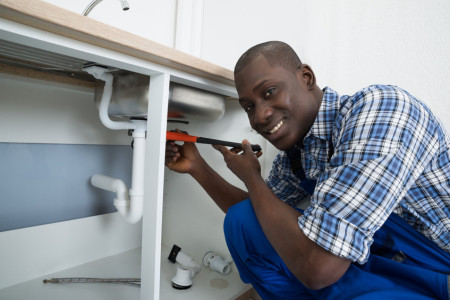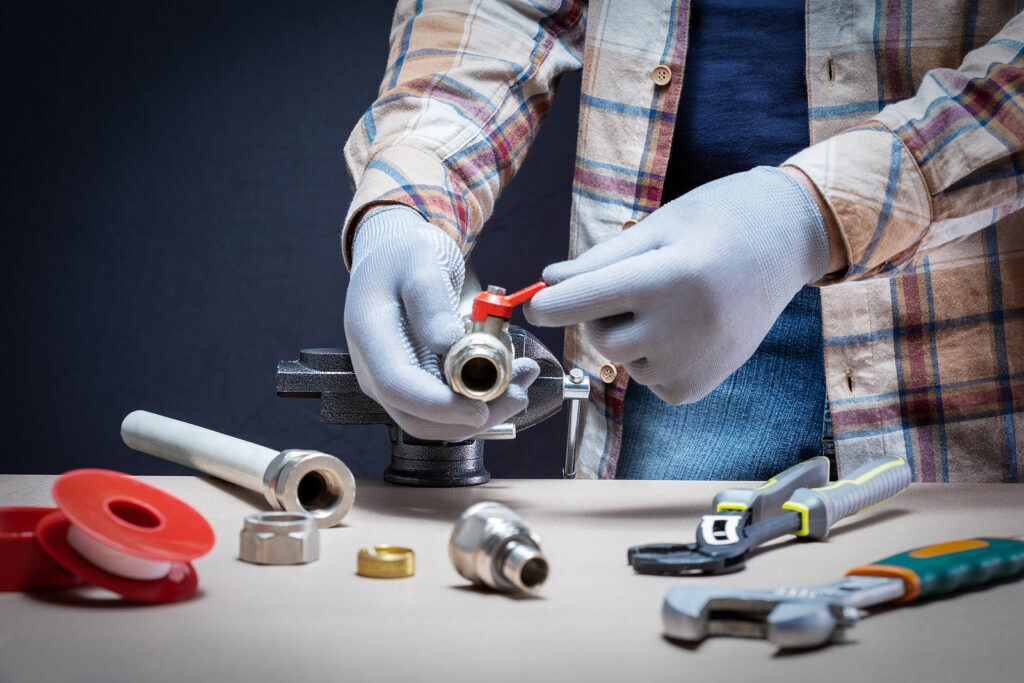Ways to Fix Emergency Plumbing with Quick Tips Until Help Arrives
Ways to Fix Emergency Plumbing with Quick Tips Until Help Arrives
Blog Article
We have uncovered this great article on What to Do During a Plumbing Emergency listed below on the net and concluded it made good sense to share it with you here.

Plumbing emergency situations can strike at any moment, triggering stress and potential damage to your home. Whether it's a burst pipe, a blocked drain, or a leaky faucet, knowing how to manage the situation till a specialist plumbing professional shows up can conserve you from additional issues. This article provides essential emergency pipes pointers to aid you minimize damages and restore control during a plumbing crisis.
Turn Off the Water Supply
The very first step in any kind of pipes emergency is to shut off the water supply. For local problems, such as a leaking tap or toilet, switch off the shutoff near the component. In the case of a major leakage or burst pipeline, find your home's primary water shut-off valve and transform it off quickly. Understanding the location of these shutoffs in advance can save valuable time during an emergency situation.
Address Little Leaks with Temporary Solutions
Little leaks can quickly end up being significant troubles if left untreated. Utilize these temporary solutions up until expert help gets here:
While these repairs aren't permanent, they can assist minimize water loss and damages.
Unclog Drains Securely
A blocked drainpipe can be a discouraging and unpleasant problem. Here's exactly how to tackle it:
If these approaches do not work, stay clear of using extreme force, as it may get worse the blockage.
Handle Overflowing Toilets
An overruning toilet can trigger prompt mayhem. Below's what you should do:
Turn off Your Hot Water Heater
In particular emergency situations, such as a burst pipe, it's smart to shut down your hot water heater. This prevents overheating or damage to the system when water stops streaming. Switch off the power supply to the hot water heater (electrical or gas) and let it cool down to avoid prospective dangers.
Momentarily Stop a Burst Pipe
A burst pipe can cause considerable water damage in minutes. To alleviate the problem:
Call an expert plumbing technician promptly to resolve the trouble completely.
Manage Frozen Water Lines Very Carefully
In colder climates, frozen pipelines are a common emergency. If you think an icy pipeline:
Protect against More Damages
Taking fast activity to minimize damages can conserve you time and money in the long run. Here's just how:
. Have an Emergency Pipes Kit
Prepare a standard pipes emergency package to deal with minor concerns efficiently. Your package ought to consist of:
Having these tools accessible can make a considerable difference in your capability to manage emergency situations.
Know When to Call a Professional.
While quick fixes can aid temporarily, particular plumbing concerns require prompt expert focus. Call a plumbing technician if:.
Quickly speaking to a professional makes sure the issue is fixed appropriately and avoids further issues.
Conclusion.
Pipes emergencies can be frustrating, but with the ideal knowledge and devices, you can manage the circumstance properly until assistance arrives. By shutting off the water supply, attending to tiny leaks, and utilizing short-lived fixes, you can lessen damage and keep your home safe. Bear in mind, these tips are momentary solutions; always get in touch with a licensed plumbing technician to take care of the root cause of the issue. Preparation and quick reasoning are your ideal allies in any kind of plumbing emergency.
8 Helpful Tips for Managing Plumbing Emergencies at Home
If your plumbing system hasn’t failed once, wait for it because almost everyone has a story to tell. Sometimes, it could be simple emergencies such as a leaking pipe, a blocked cistern, or even a big burst pipe. In situations like this, you need to have some handy tips to save you some money and from possible damages.
Take care of minor issues early.
Sometimes, you could have avoided an emergency by taking proactive measures while it was still early. Some major plumbing emergencies can be a result of an ignored minor issue. We recommend that you have items like plumbing tapes and other related items. A plumbing tape can allow you to manage minor leaks before the plumber arrives.
Cut off the water supply.
This tip is essential in almost any type of leakage problem. For problems like minor leakages in the toilet or kitchen, turn off the supply that takes water to the affected pipes. If the leakage is a major pipe, you must shut off the supply valve to the entire building. This will help you avoid flooding your home and neighbors if you share a flat.
Know your plumbing system
Folks typically move into a new apartment without understanding the water supply around the building. This can prove disastrous if a water emergency arises and the plumber is far away. The previous tip will prove useless if you don’t practice this one. More importantly, know where your water shut-off valve is located – you’ll need that knowledge to prevent potential home floods.
Have some common handy tools
There are lots of plumbing emergencies that you can handle without hiring a plumber. That’s why you must keep some tools available always. Some tools that you can use to fix simple plumbing emergencies easily include plumbing tapes, screwdrivers, thread seal tapes, plungers, pliers, tape measures, and rubber gloves.
Insulate your pipes from cold
You’ll save yourself from many plumbing expenses if you protect your water pipes from the cold. This is because of the harmful effects that cold weather can have on your pipes. During winter, your pipes can burst from being overly expected to freezing temperatures. So, make sure insulators are there to keep the pipes working correctly.
Avoid practices that will clog your toilet.
Many people indulge in practices that can damage the plumbing system of the entire building. One of these is when they use their toilet to dispose-off garbage. They flush all kinds of things, such as paper towels, bandages, hairs, female sanitary products, etc., down the toilet. This will block your toilet in the long run, incurring unnecessary expenditures. Dump such waste in the trash instead.
Check your dials regularly.
Sometimes, there could be leakages in your home without noticing them in time. So, constantly monitor your water meter dial. If the dial is reading when there is nobody using water, this is an indicator that there is leaking. Check for leaks immediately. Call a plumber as soon as possible if you can’t find any.
https://www.constructionplacements.com/8-helpful-tips-for-managing-plumbing-emergencies-at-home/

Do you enjoy more info about ? Try to leave a remark below. We'd be happy to find out your insights about this entry. Hoping that you come back again before long. Liked our write up? Please share it. Help somebody else discover it. Bless you for being here. Kindly come visit our site back soon.
Call Today Report this page